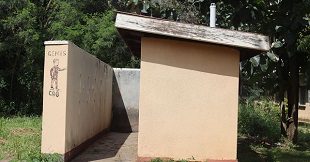
Kampala, Uganda | THE INDEPENDENT | As the global outbreak of COVID-19 has upended lives across the world, a rise in conditions including depression and anxiety have been seen as people adapt to lifestyle changes.
Medics have observed that public health actions, such as social distancing, can make people feel isolated and lonely and can increase stress and anxiety, even though they are necessary to reduce the spread of COVID-19. But experts have noted that this kind of anxiety can be beaten with Yoga, an ancient physical, mental and spiritual practice that originated in India.
As the World Celebrates the sixth annual International Day of Yoga on 21 June, the United Nations equally recognized the ancient practice as a holistic approach to health and wellbeing, and a powerful tool for dealing with the myriad stresses brought on by the COVID-19 pandemic.
This year’s observance – organized as an online celebration is held under the theme, “Yoga for Health – Yoga at Home”, as precautions are taken during the fight against COVID-19 have shut down yoga studios and other communal spaces. Practitioners have turned to home practice and online yoga resources.
“During my missions and the ongoing confinement, yoga has really helped me to stay calm, balanced and focused,” said Silke Von Brockhausen, an official from the UN Children’s Fund who is now helping the UN respond to global emergencies.
Parents may also find it helpful for keeping their children relaxed and physically active while schools and summer break activities are cancelled. Schools in Uganda have been closed since March 20, when the first lockdown was announced, to forestall the spread of coronavirus disease.
“Yoga is a unique discovery,” says Nagaraj Naidu, the Deputy Permanent Representative of India to the United Nations. “I have seen it transform me, my family. Yoga has got tremendous benefits to offer.”
The United Nations proclaimed 21 June as the annual International Day of Yoga in 2014 with the adoption of General Assembly resolution endorsing a vision set out by India’s Prime Minister, Narendra Modi. “Yoga embodies unity of mind and body, thought and action…a holistic approach valuable to our health and wellbeing,” he told the sixty-ninth session.
The World Health Organization (WHO) has equally stressed the benefits of yoga from the earliest days of the COVID crisis, recommending the practice as a way to look after physical and mental wellbeing at home.
WHO Director-General Tedros Adhanom Ghebreyesus has also cited it among his tips for living well while in quarantine, during his weekly media briefings. He pointed to the nature of yoga techniques, combined with breathing and meditation which have been shown to ease the symptoms of depression and anxiety and boost energy.
Yoga also features prominently in WHO’s Global Action plan on Physical Activity 2018-2030, which makes a link between investment in policy actions to increase physical activity and achievement of the Sustainable Development Goals, particularly on good health and wellbeing.
“Health no longer applies to the condition of not being sick”, said President of the General Assembly Tijani Muhammad-Bande in opening remarks during the virtual celebration. It also involves staying well. “Global health is a long-term objective.”
********
URN
 The Independent Uganda: You get the Truth we Pay the Price
The Independent Uganda: You get the Truth we Pay the Price


